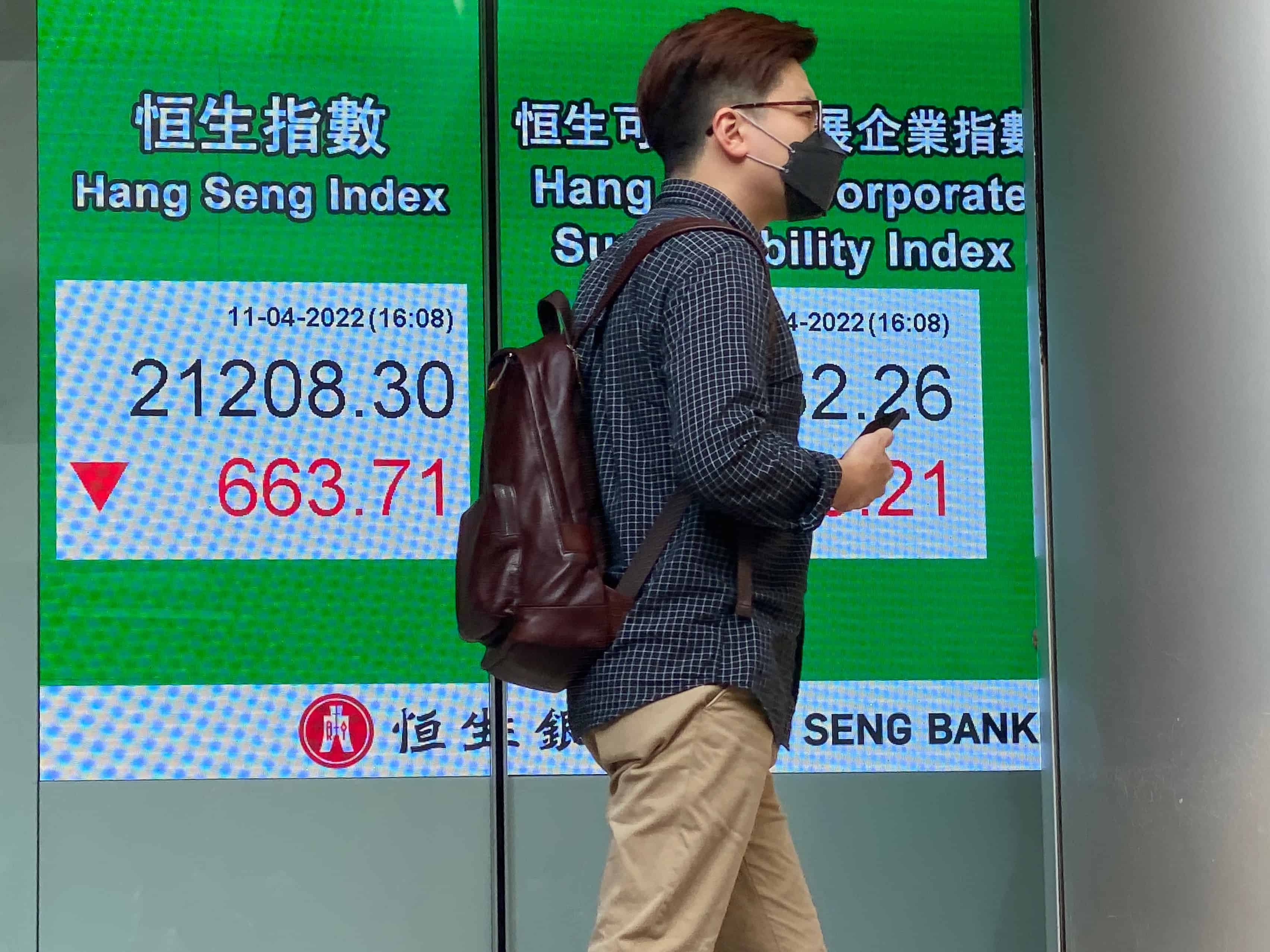HONG KONG, CHINA – Asian equities wobbled Friday at the end of a draining week as fresh US jobs data put revived bets on two more Federal Reserve interest rate hikes, adding to ongoing worries about China’s economy.
Investors have largely been on the back foot since Monday, when Beijing announced a big miss on second-quarter growth that indicated the post-Covid recovery had come to a halt.
The uncertainty in Asia followed a sell-off in New York, where tech titans were hammered after earnings reports from Netflix and Tesla disappointed.
This week’s stumble follows a rally last week when a faster-than-expected slowdown in US inflation stoked hopes the Fed could end its rate hikes after July’s meeting while also avoiding a recession.
But confidence took a knock on Thursday when fires showed a surprise drop in US jobless claims last week, suggesting the labor market remained resilient.
While data has recently pointed to a weakening in the US economy that would help ease inflation, the Fed has said it needed to see more softening in the jobs sector.
Christian Scherrmann at DWS Group said, “While the ongoing disinflationary progress surely looks ‘promising’, it would appear that policymakers still want to see some more ‘good’ data on inflation as well as some further signs that labor market imbalances are abating.”
“Only then would the (policy board) seem inclined to shift towards a prolonged ‘wait-and-see, data-dependent, higher for longer’ mode. Therefore, we also do not expect that Fed officials reverse their clear hawkish stance at the upcoming meeting.”
SPI Asset Management’s Stephen Innes said that while there was a good chance the economy will avoid contraction while the Fed brings inflation down, traders remained cautious.
“For now… investors are likely waiting on further evidence of soft landing dynamics to come into play — resilient growth met with a further softening in wage and price inflation,” he said.
He added that would suggest “the economy is coming into better balance”.
Markets were mixed on Friday in Asia.
Hong Kong, Seoul, Manila, Singapore, Bangkok and Wellington edged up but Tokyo, Shanghai, Sydney, Mumbai and Taipei all fell.
London and Frankfurt dipped but Paris rose.
– Yen rally fizzles –
Lewis Grant, of Federated Hermes, warned that equities could still face a bumpy ride.
“In the last 24 hours alone there has been talk of a worsening of the conflict in Ukraine, a further slowdown in China and major US banks facing significant real estate losses,” he said.
“Each of these threats, along with uncountable unknowns, has the potential to halt the sentiment rebound in its tracks.”
While next week’s Fed policy decision is highly anticipated, traders are also keeping an eye on Beijing, hoping for some movement on plans to kickstart the world’s number two economy.
Officials have unveiled various pledges, particularly to help embattled developers, but apart from a small rate cut last month, there has been very little of substance.
There is hope, however, for something at a key meeting at the end of July.
“Additional stimulus measures may come through after the Politburo meeting, but the scale and targeted areas remain to be confirmed,” Morgan Stanley strategists, including Laura Wang, said.
But they added that because officials were likely to take their time before making crucial decisions, “we see further downward pressure on corporate earnings through the next one to two quarterly resu0lts seasons”.
On currency markets, the yen rallied briefly against the dollar after data showed Japanese inflation picked up speed in June, which some saw as putting further pressure on the Bank of Japan to tighten policy.
However, the unit fell back as observers suggested the figures were unlikely to shift monetary policymakers from their ultra-loose stance.
The central bank is expected to stand pat at its meeting next week, after governor Kazuo Ueda’s recent dovish comments.
Mitsuhiro Furusawa, a former vice minister of finance for international affairs, said: “In the past, I thought July is possible, but the way he’s speaking, if he moves next week, it’ll be a major surprise.”

